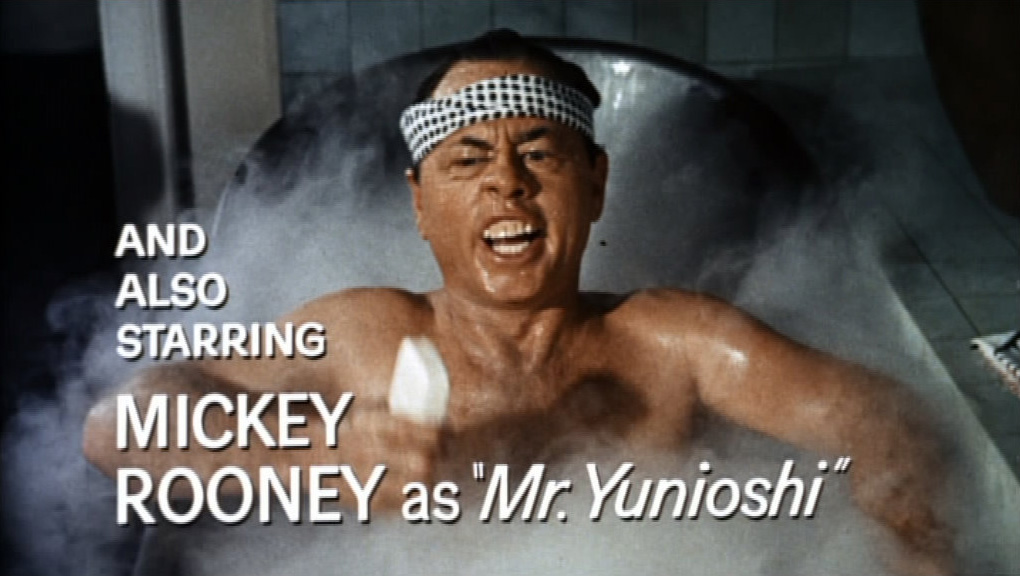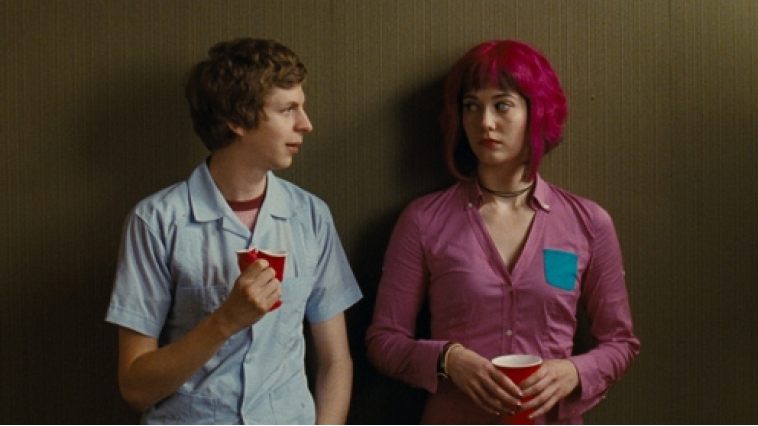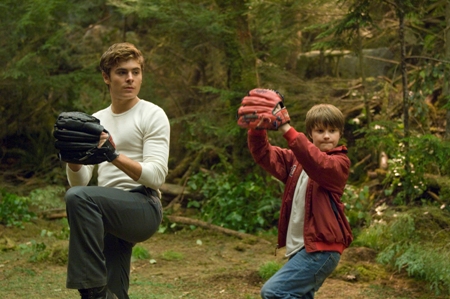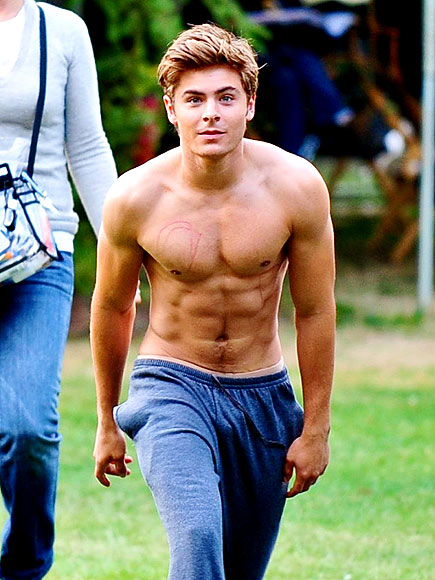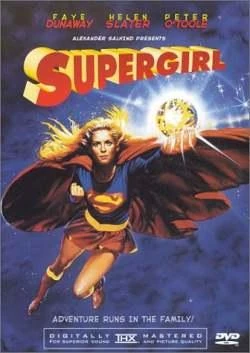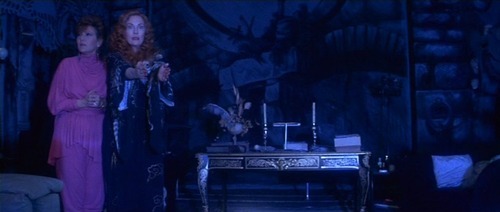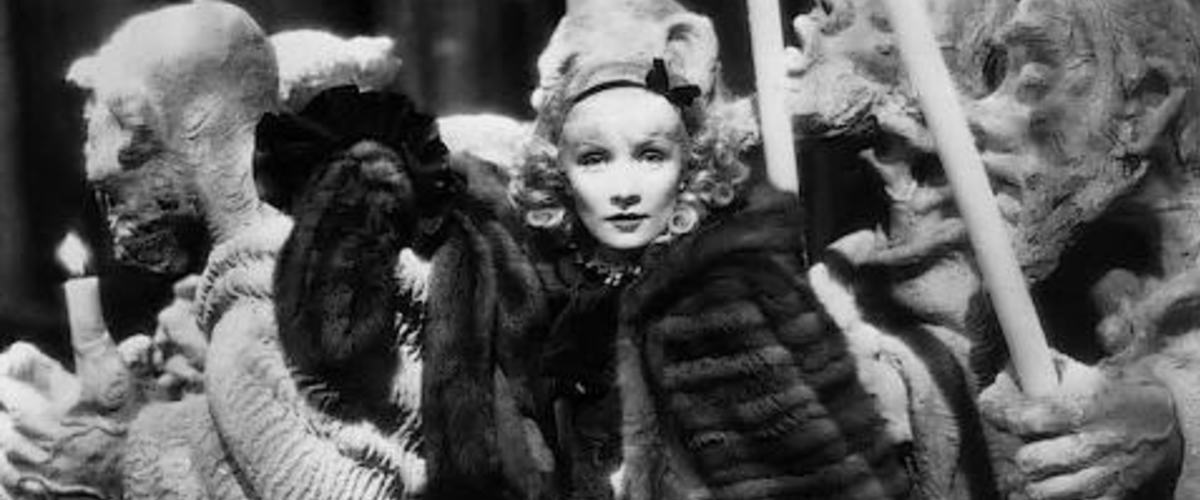It's A Kryptonite At The Movies...
I'm all for equality and can even see clear to support 'girl power', but
Supergirl almost makes the case that a woman can't do the same thing a man can, at least if that man is Superman. Of course, I don't know anything about the adventures of Kara, Jor-El's cousin, since I didn't read comic books (even less likely if it was about a girl), so I can only judge
Supergirl by the film itself. That being the case, one can wonder how anyone would think this film in particular would inspire a franchise.
In 'inner space' (or as I understood it, the deepest ocean), said Kara (Helen Slater) lives in peace with her family and friends. Chief among her friends is Zoltar (Peter O'Toole), the creator of Argo City. He is able to create wonderful things do to the omegahedron, a glowing ball that spins on its own power and that has incredible power. The omegahedron escapes out of Argo City, dooming Argo unless it is returned within a few days. Zoltar will be sent to the Phantom Zone and pledges to recover the omegahedron but Kara launches on his craft before anyone can stop her. She eventually emerges from a lake in full Supergirl garb and begins her search.
Kara adopts the nom de femme of Linda Lee, student, and starts a duel with Selena (Faye Dunaway), a witch. Literally, she's a witch, or if you prefer, a sorceress. Aided by her sidekick Bianca (Brenda Vacarro) and her rival/mentor Nigel (Peter Cook), the omegahedron falls almost literally into Selena's lap (technically, her mashed potatoes), and it gives her all the power she desires to TAKE OVER THE WORLD (side note: why is it that every super-villain wants to take over the world).
As Linda, Supergirl becomes friends with Lucy Lane (Maureen Tiffy), who coincidentally is Lois Lane's sister and who has a semi-romantic relationship with one Jimmy Olsen (Marc McClure). Nigel, coincidentally, is a teacher at Lucy & Linda's school (side note: what we always suspected about our teachers has been confirmed: they ARE witches/warlocks), and Serena soon spots the school gardener, Ethan (Hart Bochner). She attempts to seduce him by giving him a spell where he will fall in love with the first person he sees. Ethan escapes and in the chaos of Selena trying to recapture him, whom should he see but Linda. Eventually, Selena is forced to join with Nigel to get better control of the omegahedron, and Supergirl finds herself in the Phantom Zone with Zoltan. She manages to escape and have one final duel with Selena, vanquishing her and still having time to return to Argo City.
Supergirl is in many regards a great idea for a film, even a film franchise. Ilya Salkind had already had great success with
Superman: The Movie and
Superman II (less so with
Superman III, but that is another story), so he was well-versed in the material. That being the case, how did
Supergirl go so disastrously wrong?
Well, for starters, it seems screenwriter David Odell wasn't taking anything about the mythology of Kara seriously. You can't write a movie with Faye Dunaway as a literal witch and not expect people to start laughing. That goes more to the point of a wrong-headed idea: the sorcery angle. By making the villains into some sort of second-rate coven (part of the plot was that Selena was still learning how to be a good witch, or is it a bad witch), you take away a great deal of the threat to Supergirl. If Selena had been some sort of petty criminal who had become a powerful sorceress as a
result of her first contact with the omegahedron, you might have had something. As it stood, you already have a situation comedy on your hands when it appears that Selena and Bianca's efforts to become all powerful are falling flat.
You go into another aspect of the Selena coven that is just plain silly. Once she banishes Supergirl to the Phantom Zone (one exactly wonders
how a human knows about the Krypton Phantom Zone, let alone could
create one) she has the power to rule the universe, but what she does is basically install a mountain in the middle of the American Midwest (with a third-rate castle on top) and have herself ridden around the town of Midvale with her court jester and zombie-like boy-toy in her new police state. For most of
Supergirl, Selena and Bianca's lair is an abandoned carnival, which alone lends itself to being a subtle suggestion of what the film eventually turned into.
Odell's oddball script also has several points of logic that are never answered or explained. We already have the Phantom Zone mystery (right down to how Selena could create a world where Zoltan is still wandering around), but we also never figure out exactly how Zara knows not only that Superman is her cousin, but even more bizarrely, how she knows what his secret identity is (down to quickly typing out a letter of reference signed by one Clark Kent).
We never get an explanation as to how Kara emerges from a lake in full Supergirl garb, like a cross between Aphrodite arriving from the foam of the sea and Athena emerging from Zeus' head. We never get any real idea as to why Bianca is with Selena, let alone stays with her; aside from giving Vacarro a chance to throw some quips at Dunaway, what purpose does Bianca serve (except as comic relief)? Why does Selena even tolerate Bianca at all? As Ethan wanders around, if you take the potion's power
literally, one would think he would have seen at least one person he would have fallen in love with.
The film is also filled with intentionally funny lines that fall flat and unintentionally funny lines and situations. When Ethan escapes her literal fun-house, Selena manages to get some control over the omegahedron to follow his somewhat drunken stumbling into town via a mirror (although Selena admits she doesn't know
exactly how she is able to do it).

At one point, the mirror goes blank. "Oh, the cable's out," Bianca quips. "What cable?" is Selena's reply, but Dunaway's delivery makes it sound like if Selena is confused as to what Bianca is referring to, as if she is talking about a
literal cable cord.
When Selena is attempting to recapture Ethan, the chaos that ensues is suppose to be tense and exciting, but it only comes off as hilarious, made even more so by Jerry Goldsmith's dramatic score, which only adds another level of laughter. How can you not laugh when a man is captured by being figuratively eaten by an earth-moving machine? How can you not laugh when you first see the "Burundi Wand", which looks like something picked up at a New Orleans Voodoo Gift Shop (complete with feathers)?
Another unintentionally funny moment comes when Supergirl first comes to Earth and is threatened by two truckers. Even after she tells them she's Superman's cousin they still decide to try to have their way with her (which makes me wonder how dumb one has to be to try to rape someone with super-strength). If memory serves me right, after she knocks one down Slater says, "Why are you doing this?", but her delivery expresses more puzzlement than fear or anger.
This leads to another point of logic: if she knows who Superman is (and who Clark Kent is), why doesn't she know she will have his powers (especially when she's dressed exactly like him)?
What sinks
Supergirl in terms of story is that by the end, the film has degenerated into a fight between two women over a man, and a gardener at that! It couldn't have been a more clichéd scenario if it tried to be, but the fact that it wasn't trying to be a super-powered catfight made it worse.
Ultimately, while the script is pretty bad, it is dealt a death blow by Jeannot Szwarc's unimaginative direction. Take the scene where Supergirl realizes just what her powers are. What could have been a beautiful moment of a naive young girl discovering abilities beyond anything she could have imagined turns into a montage of unimaginative scenes, with no sense of wonder or magic. While watching
Supergirl, I couldn't help laughing at this scene, which I think was not the intended reaction.
It was Szwarc's unimaginative direction that had Slater and Dunaway deliver their lines the way they did, which might have been reflective of how confused
Supergirl as a whole is. It was Szwarc's unimaginative direction that failed to make certain scenes so boring (like the aforementioned 'discovery' sequence). It was Szwarc's unimaginative direction that failed to take advantage of moments that could have been really exciting (like when Ethan escapes through the fun-house, which could have been frightening but which looked cheap).
It went worse for Slater, not because she was bad as Kara/Supergirl, but because she was actually good. She projected a childlike, innocent quality in her performance and, minus the attempted attack on her, made Kara a lost little girl. She had the task of playing two characters (Kara and Linda Lee), and she maintained the balance on the whole, very well. A better script and director could have made her a more memorable character, but while Slater did the best she could it wouldn't be enough.
Teefy's take was a bit muddled: sometimes you though she was a tomboy, sometimes you thought she was all woman for Jimmy. McClure (who has the distinction of being the only actor to play Jimmy Olsen in all four Christopher Reeve
Superman films and in its unofficial spin-off), knew his character well, which is to his credit that he still could project the innocence and eagerness of Jimmy. Given that McClure, who was 27 at the time, is playing a character who has always been basically a teenager or young adult and Teefy is playing essentially a high school student at 31 that is a remarkable achievement in itself.
Bochner seemed to be having fun playing the hunk, as when he is in the power of Selena's spell. He starts out as a working-class stiff, but once under the spell he has this expression of a thoroughly love-struck moron who has no thoughts in his head apart from Linda. Vacarro doesn't have anything going for her except comic timing, but in a film like
Supergirl she is wasted because her character is not believable, making Bianca pointless as a character.
A curious point of history: Crawford once said that the only actress who could play her on film was Faye Dunaway. I suspect that, besides their remarkable looks, down to the fact they have similar eyebrows, Crawford saw in Dunaway a quality she herself had: the ability to make anything believable and be fully committed to her role. Dunaway is a remarkable and talented actress, and in
Supergirl she gives it her all. Crawford and Dunaway both could make you believe that what they were doing was real. However, even Dunaway's talent as an actress can't make something like this anything other than sheer camp, especially when she has to say lines like this:
This is what I want: the Salian Fireballs.
It also doesn't help that in
Supergirl, it seems that Faye Dunaway never missed an opportunity to show off her legs (which were fabulous, but one wonders how they were relevant to the plot). Often, she would sweep her dress dramatically or lounge around in a certain way to show us she was in the same league as Marlene Dietrich or Betty Grable.
The oddest casting is two-fold: O'Toole as Zoltan (who only had two scenes in the film where he appears not quite sure why he's there in the first place) and Mia Farrow as Kara's mother (who basically is a cameo and also appears not quite sure why she's there in the first place). The fact that neither added much and were effectively wasted in
Supergirl (no, that wasn't a drunk O'Toole joke) just goes to show that you could have acting greats in a comic book film (example: Marlon Brando and Gene Hackman in
Superman: The Movie) but that doesn't mean you have a great film.
If you watch
Supergirl for a camp pleasure, you can enjoy it. If you watch it for any other reason, you may wonder how else to fill your time. When Kara and Zoltan are in the Phantom Zone, O'Toole tells her,
When you're my age and you make as many tragic errors as I do, it is
a different tune that you will sing.
In regards to
Supergirl, he may have been referring to being in the film at all.
DECISION: C-



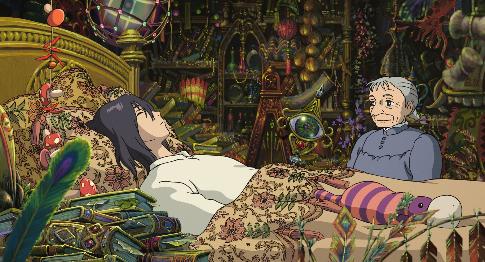



_film_poster.jpg)








